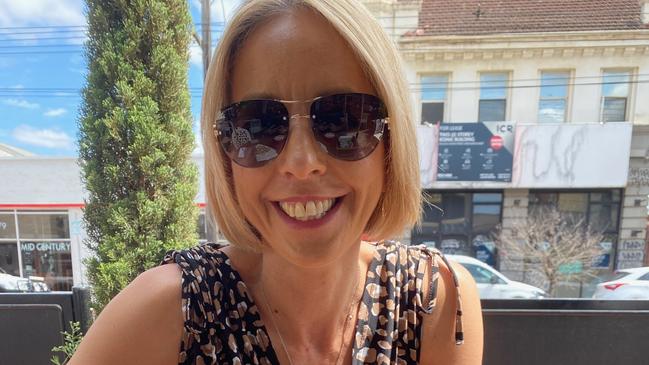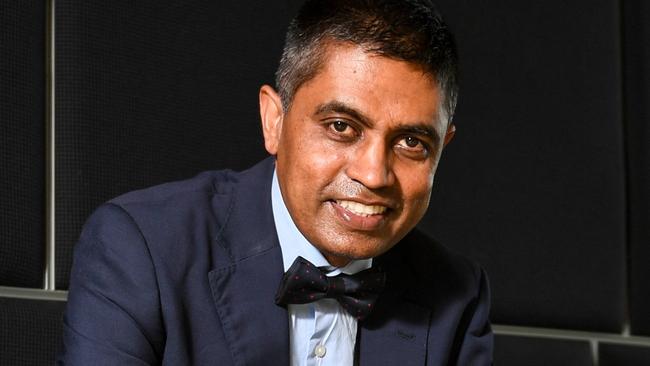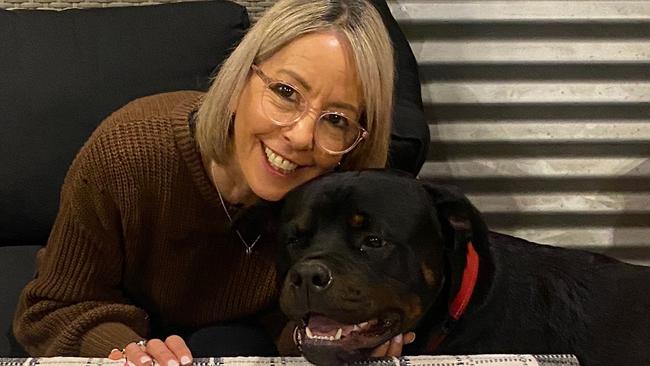Health experts meet in Melbourne to solve the puzzle of new post-Covid illness
Researchers say a new post-Covid illness resembles the after-effects of stroke as they battle to find a solution to the long-term impact of the virus on the brain.
Coronavirus
Don't miss out on the headlines from Coronavirus. Followed categories will be added to My News.
Victorians suffering from a new illness called Post Covid-19 Neurological Syndrome (PCNS) are helping researchers worldwide better understand the impact and lasting consequences of the virus on the brain.
The good news is that most people recover from PCNS within months but the key, experts say, is to remain positive.
University of Melbourne neurologist Tissa Wijeratne was the first in the world to identify and name the syndrome in 2021 with researchers at La Trobe University.
He coined the term after he saw more than 100 patients he was treating at Western Health develop a range of symptoms including severe anxiety, brain fog, headaches and fatigue after they had been infected with Covid-19.

“The majority of the patients have recovered, so there is a positive outcome,” Professor Wijeratne says, adding he is not surprised that there are long-term effects of Covid-19.
“Interactions between our immune system and the central nervous system are one of the most complex and interactive regulatory networks in mammals … this is what is known as Psycho-Neuro-Immunology,” Professor Wijeratne said.
“So, the fact that the brain is affected by Covid-19 is not surprising.”
An internationally respected brain specialist for more than 20 years, he first wrote about the chronic inflammatory burden of the virus early in the pandemic and published one of the first cases of brain involvement in the context of Covid-19 while describing the symptoms of PCNS.

Professor Wijeratne said these symptoms were similar to those experienced post-stroke – but the age group was much younger and usually women.
Next Tuesday he will share his clinical experience in a symposium at the Doherty Institute in Melbourne with fellow experts from diverse backgrounds who are meeting to provide a clinical and biological insight into the neurological impacts of the disease.
“There remains some unresolved puzzles such as why some people develop “long Covid” while others do not,” Professor Wijeratne says.
“My guess is that it is the biology of our body; our genetic system and the chemical and electrical structure in the brain and how our immune system is behaving when we are confronted with this virus and our response to the exposure.
“Our brains have the remarkable ability to deal with crisis when we approach it mindfully and positively. It is important to not engage in activities that are harmful to the brain health.
“We should be full of hope; experts are talking to each other, we are connected locally as well as globally and we can unravel this mystery, but we need to keep an open mind and continue to explore.”

Professor Wijeratne says Victoria has a tremendous opportunity to be world leaders in understanding PCNS and other aspects of long Covid but he called for more collaboration and the establishment of national and international registries.
“We must fight this war together,’ he said. “I hope this will extract better things out of humanity and researchers to find solutions.”
Professor Wijeratne says the symposium was exactly what was needed to help unravel some of the health mysteries presented by Covid-19.
“This will be the beginning of great things from Victoria in this space,” Prof Wijeratne says.
Melbourne mum Rosamaria Caligiuri was one of the first people diagnosed with PCNS and agrees a positive mindset is key to recovery.
She said while the symptoms were terrible, she fully recovered after six months.
“My message to anyone diagnosed with PCNS is to stay positive, this is not going to ruin your life,” Mrs Caligiuri, 48, said.





